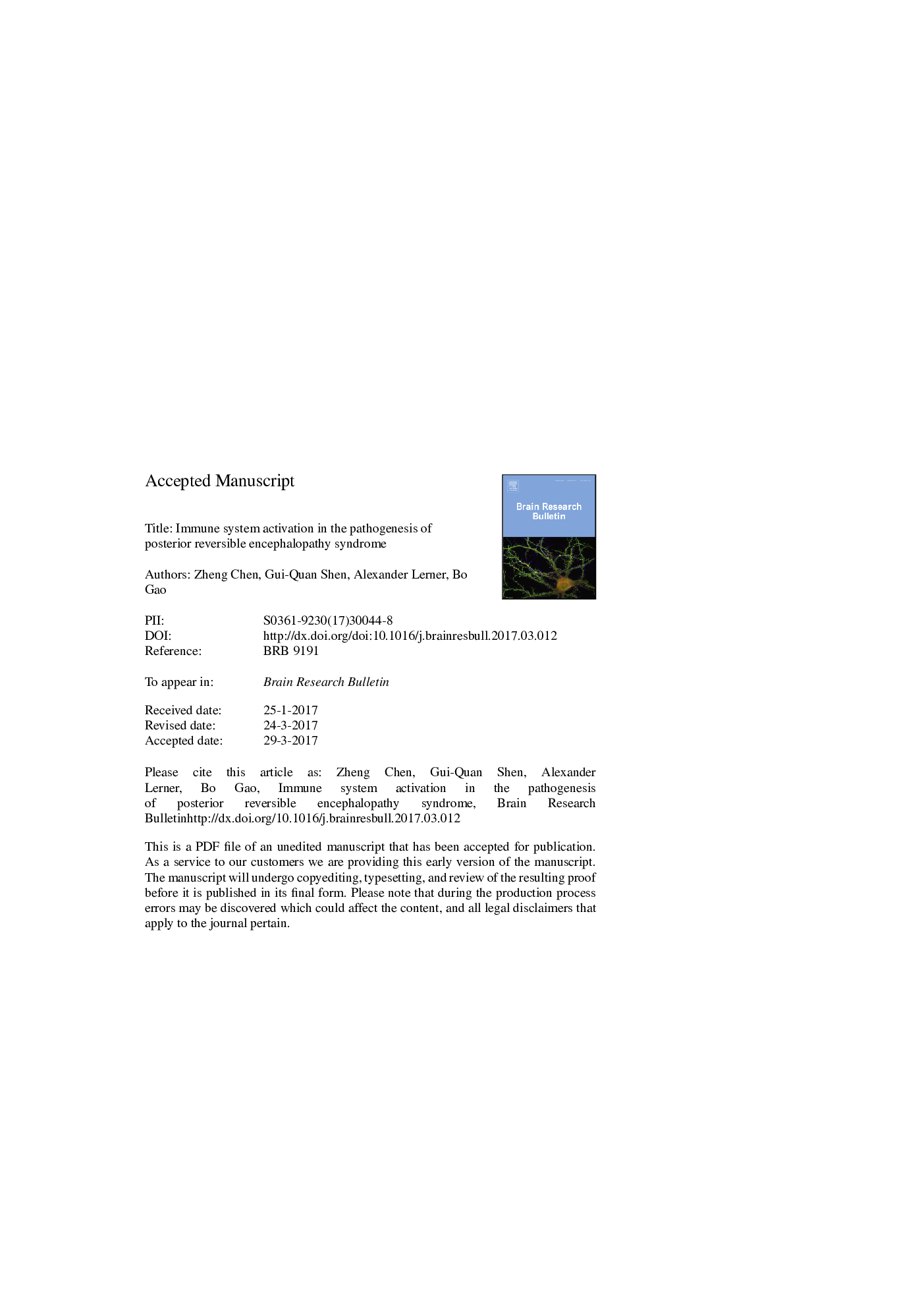| Article ID | Journal | Published Year | Pages | File Type |
|---|---|---|---|---|
| 5736254 | Brain Research Bulletin | 2017 | 28 Pages |
Abstract
Posterior reversible encephalopathy syndrome (PRES) is a clinical-radiological syndrome characterized by a variable combination of headaches, seizures, altered mental status, visual impairment, focal neurological signs and symmetric vasogenic edema in bilateral posterior cerebral circulation territory. The pathogenesis of PRES is still controversial. Most of the clinical conditions associated with PRES involve a systemic toxicity response in the entire organism with activation of the cells of the immune system and cytokines. These PRES related conditions induce T cell activation, cytokine release, and subsequent leukocyte adhesion and activation, resulting in endothelial damage and fluid leakage. This potential mechanism of immune system activation and endothelial dysfunction may play a critical role in the pathogenesis of PRES. In this review, the role of immune system activation and endothelial dysfunction in the pathogenesis of PRES is discussed, with the aim to improve our understanding of this disorder.
Keywords
ICAMTNFImmune system activationMODSHypoxia-induced factor-1αPosterior reversible encephalopathy syndrome (PRES)PRESVCAMHIF-1αMCPROSSOTinterleukinmulti-organ dysfunction syndromePosterior reversible encephalopathy syndromeSolid organ transplantationVascular endothelial growth factorVascular Endothelial Growth Factor (VEGF)tumor necrosis factorlactate dehydrogenaseLDHSystemic lupus erythematosusSLEintercellular adhesion moleculevascular cell adhesion moleculePathogenesismonocyte chemotactic proteinAllogeneic bone marrow transplantationReactive oxygen species
Related Topics
Life Sciences
Neuroscience
Cellular and Molecular Neuroscience
Authors
Zheng Chen, Gui-Quan Shen, Alexander Lerner, Bo Gao,
